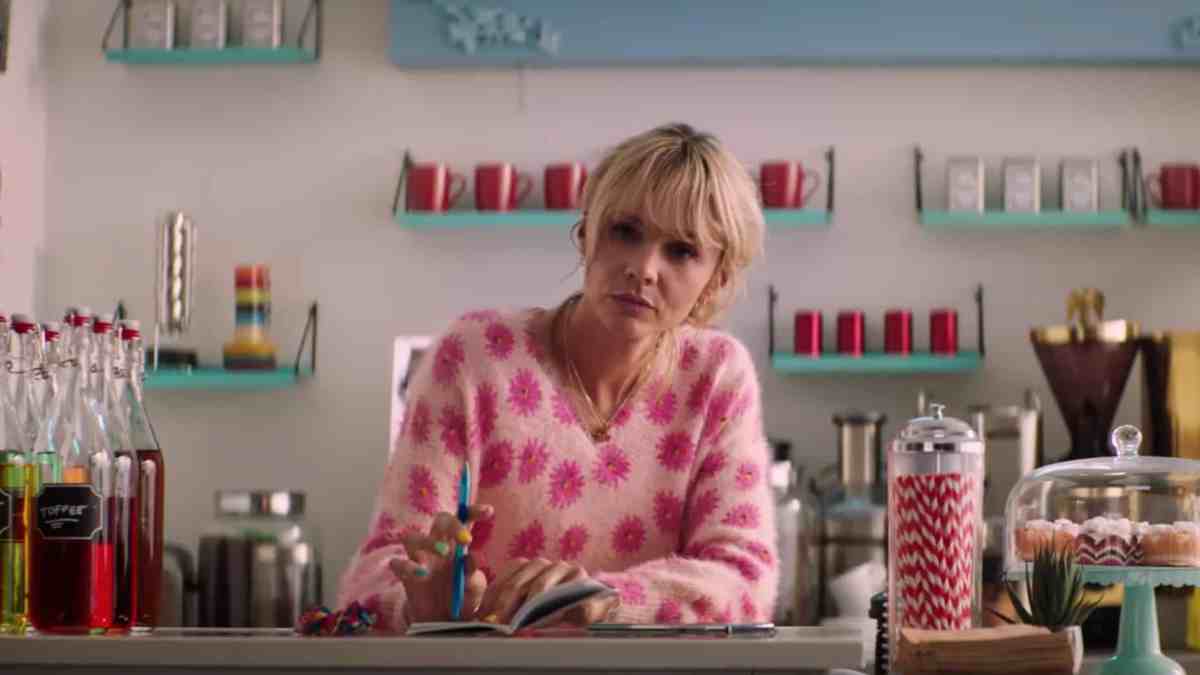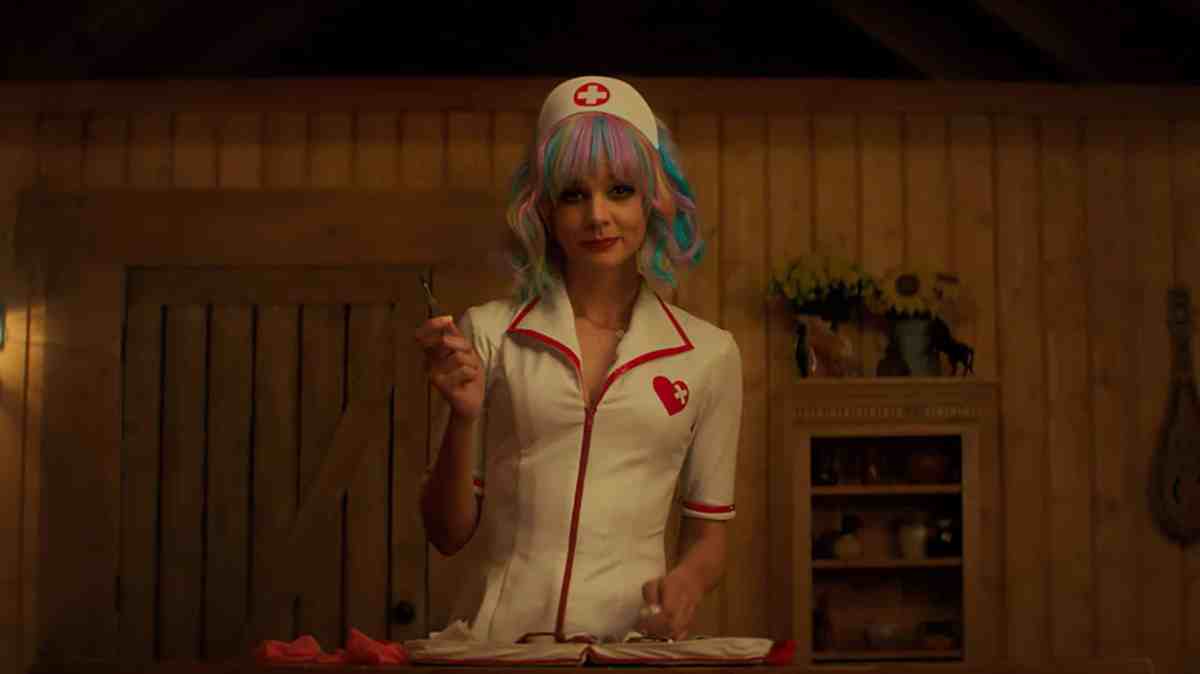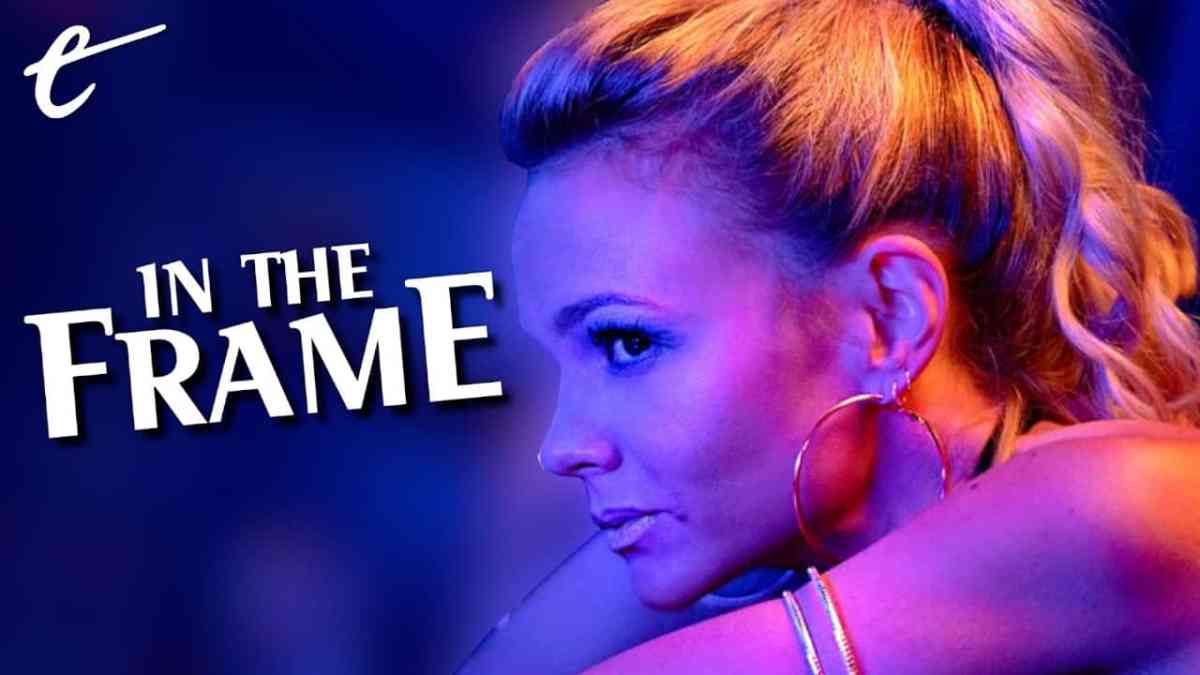This article contains spoilers for Promising Young Woman.
There is a startling moment early in Promising Young Woman.
An executive named Jerry (Adam Brody) has picked up a drunk woman named Cassie (Carey Mulligan) at a bar. Cassie has lost her phone, so Jerry offers to share an Uber with her. She can barely stand, but on the ride Jerry comes up with the idea of diverting the cab to his place. He helps her upstairs, puts a drink in her hand, and before she knows what is happening, she is on his bed. He starts undressing her as she feebly protests, “What are you doing?”
Then she opens her eyes. She doesn’t immediately look at Jerry. Instead, she looks overhead, staring directly into the camera. “What are you doing?” she demands. She is addressing Jerry, but she is also addressing the audience. When Cassie sits up to confront Jerry, and as Jerry stares back from between her legs in confusion and terror, both are staring directly into the camera. It’s a striking compositional choice from director Emerald Fennell. It is also a bold statement of purpose.
Promising Young Woman is a film that is constantly in conversation with its audience, challenging them and provoking them, playing with and pushing against their expectations. This is notable even in the film’s casting, which finds most of the actors in conversation with earlier defining roles. As Cassie Thomas, Carey Mulligan evokes memories of her career-making and Oscar-nominated turn in An Education as a young student who finds her life potentially derailed by a predatory relationship.
Promising Young Woman weaponizes television’s “nice guys,” casting actors like Brody from The O.C., Sam Richardson from Veep, Max Greenfield from New Girl, and Chris Lowell from GLOW against type. Christopher Mintz-Plasse has a small role that seems to comment on his role in classic teen sex comedy Superbad. Bo Burnham is cast as Cassie’s potential love interest Ryan, riffing on both his early “simultaneously wholesome and disturbing” comedic persona and criticisms of that persona.

However, this game with expectations extends beyond the casting of these young men. Promising Young Woman features big-screen tough guy Clancy Brown, known for tough turns in beloved films like The Shawshank Redemption, Starship Troopers, and Highlander, as Cassie’s wholesome and tender father. The film reunites Mulligan with her An Education co-star Alfred Molina, with both An Education and Promising Young Woman featuring Molina apologizing to Mulligan for his failures.
This self-awareness extends to the female roles. Cassie attempts to achieve closure following the sexual assault and suicide of her best friend Nina. Cassie reaches out to her old friend Madison McPhee (Alison Brie) and Dean Elizabeth Walker (Connie Britton), both of whom refused to believe the allegations. Brie plays off her wholesome roles in shows like Mad Men and Community, while Britton subverts her maternal role as guidance counsellor and voice of reason in Friday Night Lights.
However, Promising Young Woman does more than simply play with audience expectations of its cast. It repeatedly plays with the audience’s comfort, challenging the audience to determine what exactly they would be comfortable with. There is a lot of deliberate ambiguity in Promising Young Woman, a lot of negative created for the audience to fill. Promising Young Woman consistently withholds information from the audience about what Cassie is doing or has done.
This is most obvious with the film’s central hook. The film cuts away from that initial confrontation between Cassie and Jerry, joining Cassie as she walks home from his apartment the next morning. There is a red stain on her tights. Is it blood… or is it ketchup from the hotdog she picked up on the way home? The film later reveals that Cassie does nothing but sternly lecture the men that prey on drunk girls at bars, but it delays that revelation to play with the audience’s comfort.

Do we want to see Cassie do more? At one point, Cassie confronts Jordan Green (Molina), the lawyer who bullied Nina into dropping her charges. “Have you come here to hurt me?” he asks Cassie. “Do you want me to hurt you?” Cassie responds. Green confesses, “I think so.” However, Promising Young Woman repeatedly asks the audience to consider their potential comfort with the prospect of violent retribution, particularly when she targets other women like Madison or Dean Winters.
Cassie gets Madison drunk and arranges for her to wake up in a strange room unsure of what happens. Cassie abducts Dean Winters’ daughter and claims to have dropped her off with the young boys who now live in the dorm room where Nina was assaulted. In both cases, this is misdirection. Nothing happens. “Relax, Dean Walker,” Cassie eventually admits. “Do you really think I would do something like that?” However, the film lets those possibilities linger before reassuring the audience.
It’s a confident and assured approach, asking whether the audience really want the archetypal rape/revenge fantasy that the trailer teased. Promising Young Woman challenges the viewer. Viewers are used to stereotypically masculine narratives about avenging sexual trauma and violence inflicted on women: Straw Dogs, Death Wish, Taken. Recent years have seen feminist engagement with genre, with films like Neil Jordan’s The Brave One or Coralie Fargeat’s Revenge.
However, Promising Young Woman treats the gravity of the genre as tragedy. Characters in Promising Young Woman just want Cassie to get better, to recover from her own trauma and sense of survivor’s guilt, to move on. Her boss Gail (Laverne Cox) recommends her for a promotion. Her parents (Brown and Jennifer Coolidge) encourage her to move out of their house and to make friends again. Cassie’s obsession is not cool or badass. It is not healthy.

“Do you know how strange this is?” her mother demands at one point, seemingly driven to a breakdown by her daughter’s inability to move on. “You… you’re still living here at home, working in that stupid coffee shop since you and Nina dropped out of med school. You’re out all night long doing God only knows what.” The rape/revenge fantasy that Promising Young Woman teases, and the language in which cinema most often explores this trauma, is not empowering — it’s a nightmare.
Promising Young Woman suggests pop culture is incapable of conceiving a response to Nina’s death that isn’t a masculine revenge fantasy and that this narrative is not what Cassie needs. The film illustrates the folly of these revenge narratives as a response to sexual assault by having Cassie target and victimize other women like Madison and Dean Winters. The problems that led to Nina’s death are systemic, and neither Liam Neeson nor Charles Bronson can shoot the system in the face.
The final act brutally illustrates just how little room these sorts of narratives afford women like Nina. Promising Young Woman makes the point that Cassie doesn’t get to be the hero of these sorts of stories. At the climax, Cassie infiltrates the bachelor party hosted for Alexander “Al” Monroe (Lowell), the man who raped Nina. Cassie poses as a stripper, handcuffs Al to the bed, and plots to carve Nina’s name into his chest. Al breaks free and smothers Cassie with a pillow. Slowly. Horribly.
When Al’s best man Joe (Greenfield) arrives the following morning to find Cassie’s body on the bed, he puts the scene in context. “You killed the stripper at your bachelor party?” he asks. “What is this, the ’90s?” Cassie could never be the hero of a story like that, instead becoming the sort of anonymous and disposable woman featured in the wave of “dead stripper” movies like Dance with Death, Very Bad Things, or Dead at 17. (The genre got its own feminist reappraisal with Rough Night.)
Promising Young Woman suggests that Cassie’s behavior is self-destructive. Mulligan has described Cassie as “cavalier with her life,” while Fennell described Cassie’s routine as “addictive and self-harming.” Cassie cannot find justice through the male-coded language of exploitation cinema. Fennell explains, “If the audience is expecting, or wanting violence, then this is what happens when women try to be violent. It’s why we don’t ever try to be violent. Because it goes wrong.”
Audre Lourde famously wrote that “the master’s tools will never dismantle the master’s house.” Promising Young Woman illustrates this by demonstrating what happens when Cassie tries to apply the tropes of these exploitation genres in her favor, only to discover these narratives have little space for women like her. Still, it’s important that Promising Young Woman doesn’t completely erase Cassie. The film’s ending allows her some retribution against Al, albeit from beyond the grave.
Promising Young Woman meets the audience’s gaze head-on in its introductory scenes and never blinks. It’s a film that asks audiences to contemplate the stories that we tell ourselves, the narratives that we’re comfortable with, and what happens when we become trapped inside them. Promising Young Woman understands that Cassie will never be able to dismantle the systems that destroyed her life and Nina’s life, but she can at least blow apart the narrative.





